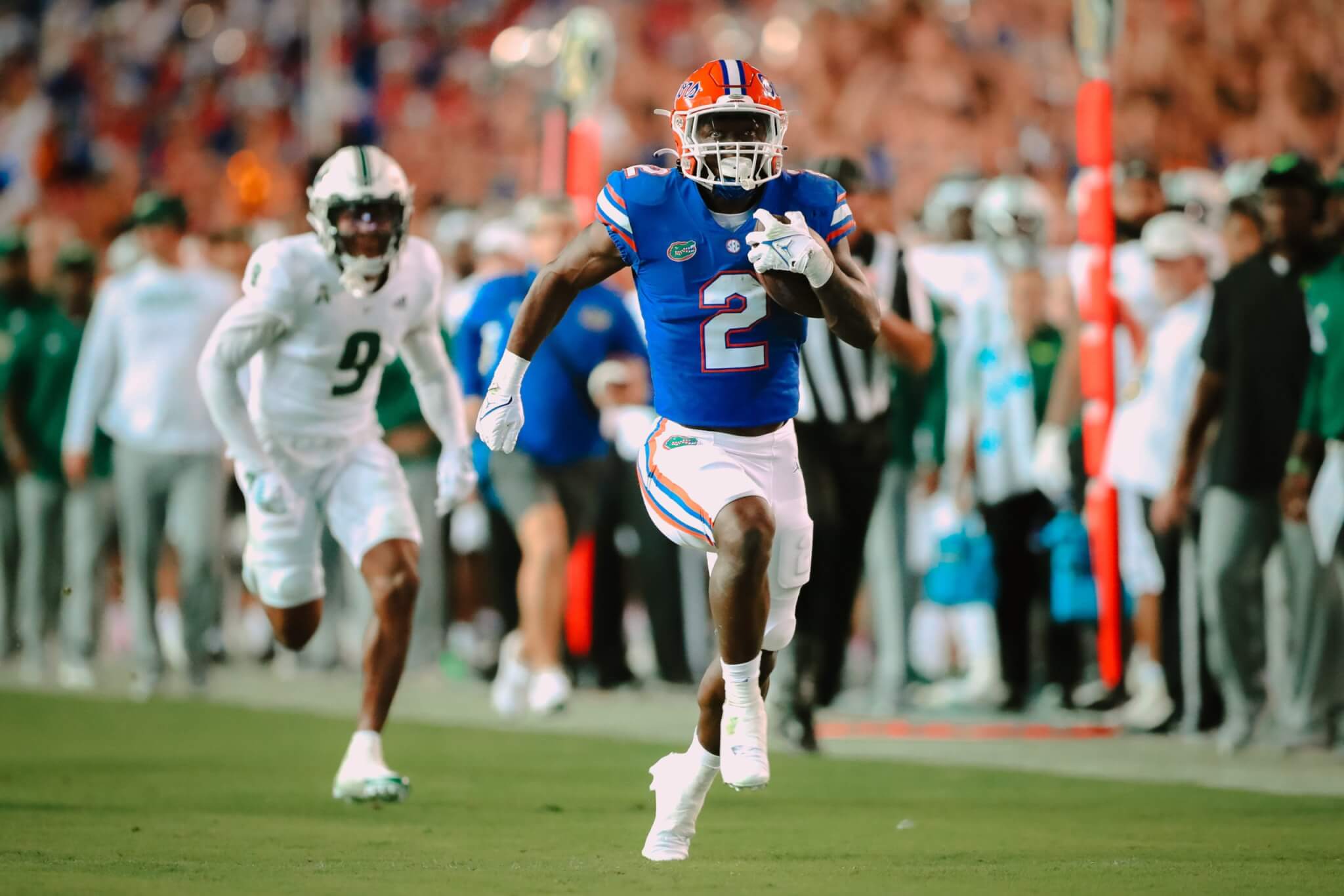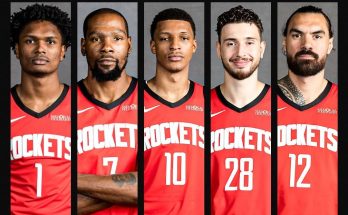Because of their history, resources, and other factors, the Florida Gators are still one of the most sought-after coaching positions in college football.
The University of Florida football program, home to the Florida Gators, is widely considered one of the most prestigious and coveted head coaching positions in all of college football. This status is not merely the result of a rich winning tradition, but also a combination of institutional support, fertile recruiting grounds, passionate fanbase, storied rivalries, and immense potential for national success. While the program has experienced highs and lows, its long-term relevance, visibility, and capacity to return to the top of the sport make it a coaching destination that consistently draws attention whenever a vacancy arises.
From a historical standpoint, the Gators have demonstrated a track record of success that places them among the sport’s elite. Though the program had modest beginnings, it rose to national prominence in the 1990s under head coach Steve Spurrier, himself a former Heisman-winning Florida quarterback. Spurrier’s era redefined the Gators as an offensive powerhouse, pioneering the “Fun ‘n’ Gun” passing attack and delivering the program’s first national championship in 1996. His legacy extended beyond wins and titles; Spurrier established a culture of innovation and swagger that would become synonymous with Florida football.
Following Spurrier, the Gators would go on to enjoy another golden era under Urban Meyer in the mid-2000s. With Meyer at the helm and Tim Tebow leading on the field, Florida captured national championships in 2006 and 2008, further cementing its place as a powerhouse in college football. These high points, combined with numerous SEC titles and top-tier bowl appearances, created a historical blueprint that any coach stepping into Gainesville must reckon with. The legacy of winning, the taste of championships, and the tradition of excellence all make Florida one of the marquee brands in the sport.
In addition to its historic success, Florida boasts some of the best resources in college football. The University Athletic Association has invested heavily in facilities, infrastructure, and support systems for the football program. Recent years have seen massive upgrades to training facilities, locker rooms, meeting spaces, and nutrition centers, designed to compete with and even surpass those of rival SEC programs. These investments reflect both a recognition of football’s central role in the university’s identity and a clear commitment to returning the program to championship contention. For a coach, such support is invaluable—it provides the tools to recruit, train, and develop elite athletes while minimizing logistical distractions.
One of the most compelling factors making the Florida job so appealing is its prime geographic location. Situated in the heart of one of the most talent-rich regions in the country, the program sits atop a recruiting goldmine. Florida high school football is among the most competitive and productive in the nation, consistently producing elite athletes across all positions. In addition to in-state prospects, the Gators can readily recruit from neighboring Georgia and Alabama, and the broader southeastern United States. This access to top-tier talent ensures that the right coach, with the right staff and strategy, can rapidly build a competitive roster capable of challenging for conference and national titles.
Moreover, the University of Florida’s membership in the Southeastern Conference (SEC) adds to its allure. The SEC is widely regarded as the most powerful and prestigious conference in college football. Playing in the SEC guarantees high levels of exposure, top-flight competition, and access to the sport’s most passionate and engaged fanbases. Though the SEC’s competitiveness can be a double-edged sword—it makes winning more difficult—it also enhances the prestige and potential rewards. Coaches who succeed in the SEC are often vaulted into legendary status, while even those who perform reasonably well are viewed as having weathered the toughest competition college football has to offer.
The intensity of Florida’s fanbase is another reason the coaching job is so sought after. The Gator Nation spans the entire country, and its supporters are deeply invested in the success of the program. While this passion can create pressure, it also fuels the kind of energy and commitment that elite coaches often thrive on. The Swamp, as Ben Hill Griffin Stadium is known, is one of the most intimidating venues in the country when rocking at full capacity. A packed Swamp provides a massive home-field advantage and symbolizes the potential energy that a successful program can unleash. For a head coach, the opportunity to lead a program that evokes such fervor is both a professional challenge and a personal thrill.
Another critical element is the rivalries that come with the Florida job. Few programs boast a more intense and storied set of rivalries. The annual showdown with Georgia in Jacksonville, dubbed the “World’s Largest Outdoor Cocktail Party,” is one of the premier rivalry games in the sport. The in-state rivalry with Florida State brings with it decades of history and passionate animosity, while the contest with LSU and the occasional renewal of tensions with Tennessee or Miami adds further layers of competitive drama. These rivalries add color, stakes, and national interest to nearly every season. A coach who wins these games is celebrated; one who dominates them is immortalized.
Florida also offers a strong academic and institutional profile, which appeals to coaches looking to align with a university that values both athletics and academics. As a flagship public university with nationally ranked programs in law, engineering, medicine, and business, Florida has an academic cachet that supports its athletic brand. This dual reputation makes recruiting easier and allows coaches to sell not just football, but a comprehensive collegiate experience to prospective student-athletes and their families.
The potential for rapid turnaround also makes the Florida job particularly attractive. College football, more than most sports, allows for quick rises under the right leadership. Given the talent pool, institutional support, and recent upgrades, a strong head coach could bring the Gators back to national relevance within a short timeframe. While the program has experienced turbulence and turnover in the post-Meyer era, including less successful tenures under Will Muschamp, Jim McElwain, and Dan Mullen, none of those coaches were without moments of success. Each was able to win, at least for a time, suggesting that the infrastructure is always there—waiting for the right leader to maximize it.
Another layer of appeal lies in the branding and national exposure that comes with the Florida job. The Gators are regularly featured on national television, participate in high-profile matchups, and are part of the broader pop-cultural fabric of college football. The school’s logo, colors, and fight songs are widely recognized, and players who succeed in Gainesville often find themselves on the radar of NFL scouts. For coaches, this spotlight enhances their platform. Success at Florida isn’t just a personal triumph; it’s a step into the national conversation. A winning coach at Florida becomes a household name, often with the power to shape narratives and influence the direction of the sport as a whole.
Of course, with all of these benefits comes significant pressure. Florida is a program where expectations are high and patience is limited. A coach who cannot meet the program’s lofty goals will find little comfort in past accomplishments. This intensity, however, is precisely what attracts some of the best minds in the game. For highly competitive coaches with a hunger for legacy and a belief in their own systems, the Florida job offers a stage commensurate with their ambitions. It’s not a job for the faint of heart, but for those seeking greatness, it offers a rare and powerful opportunity.
In the current college football landscape, shaped by Name, Image, and Likeness (NIL) rules, transfer portals, and increasing conference realignment, Florida is well positioned to adapt. Its large and engaged alumni base provides a solid foundation for NIL initiatives. Its brand strength makes it appealing to athletes looking to grow their personal profiles. Moreover, as a member of the SEC, which is growing increasingly influential in the new power structure of college football, Florida remains at the heart of the sport’s future.
In sum, the Florida Gators football coaching job remains one of the most sought-after roles in the sport due to a unique combination of history, resources, geography, competition, and institutional backing. While other programs may occasionally shine brighter or offer momentary advantages, few can match Florida’s enduring appeal. For the right coach, the Gators offer more than a job—they offer a chance to build a dynasty, shape a legacy, and write a new chapter in the storied history of one of college football’s great programs.



